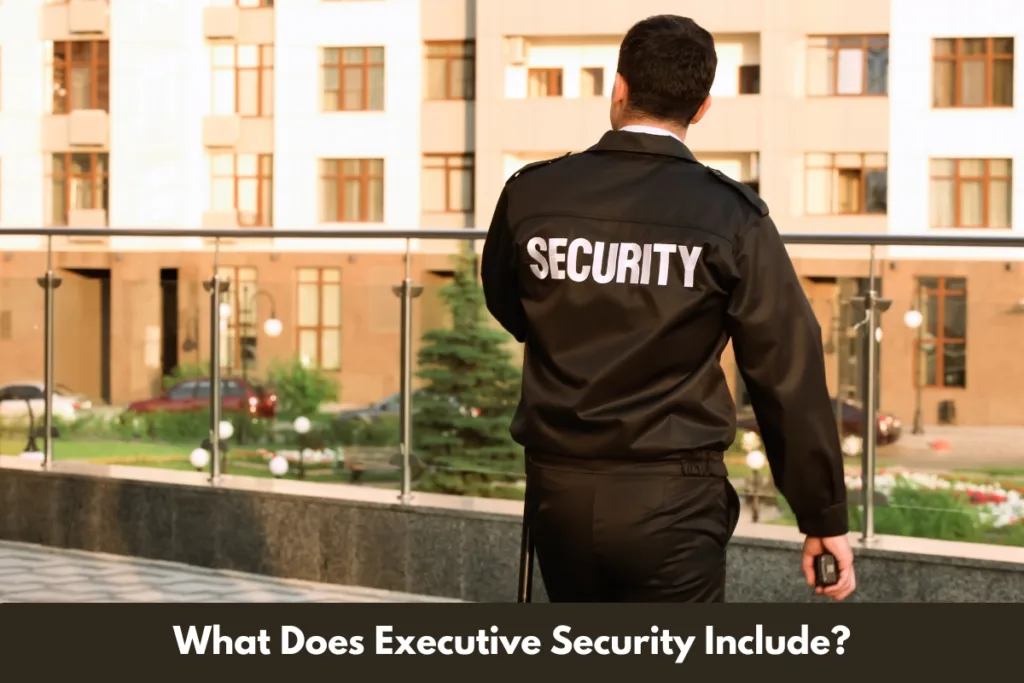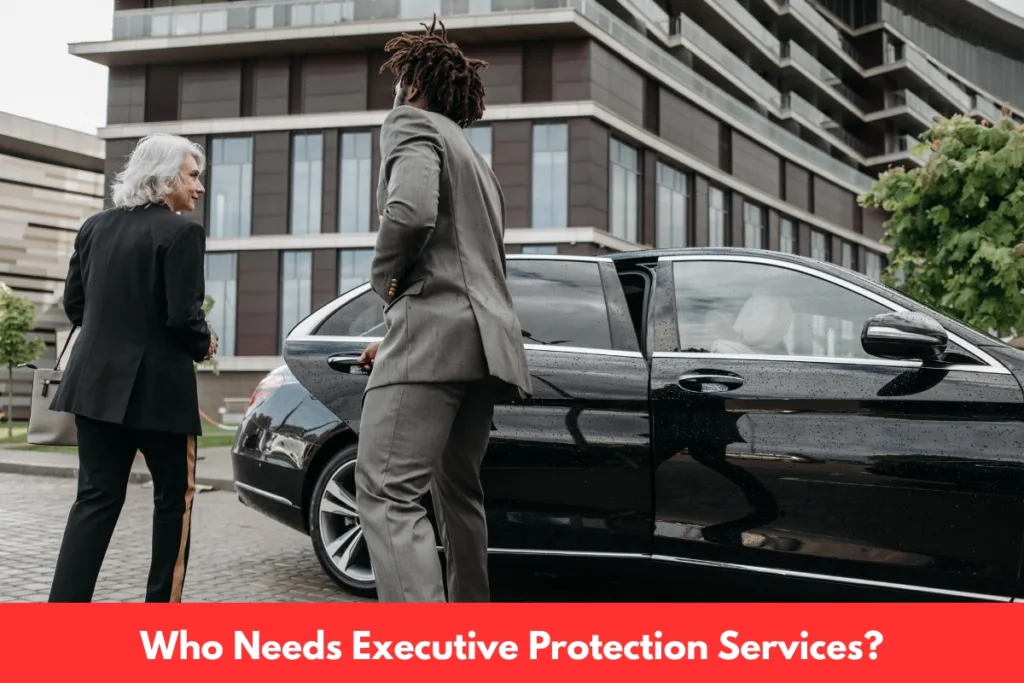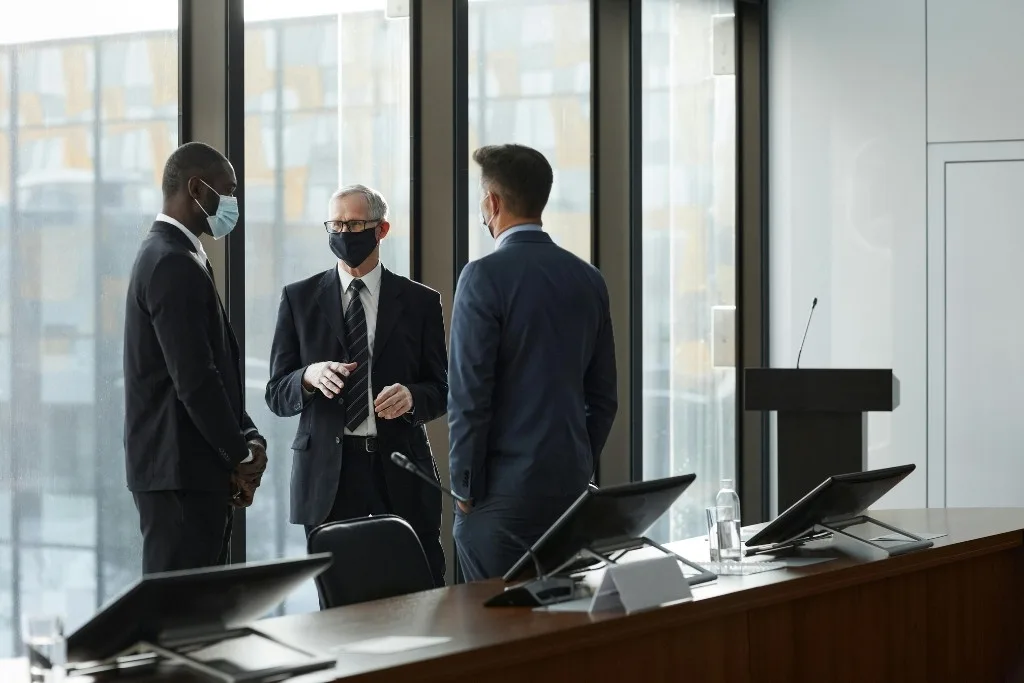Most people think executive protection is just some big guy in a suit following you around. That’s not really it.
Executive protection goes beyond the typical bodyguard services you see in movies. It’s actually a whole system designed to keep important people safe through careful planning and professional security measures. If you’re a business leader, celebrity, or just someone who might face security risks, this stuff matters. At HKDEF, we’ve been in this business long enough to know what works and what doesn’t. So we thought we’d break it down for you – what executive protection actually is, who needs it, and what you can expect to pay for it.
What Is Executive Protection?
Executive protection is a specialized security service that goes beyond traditional bodyguards. It creates a comprehensive security bubble around high-profile individuals through risk assessment, threat mitigation, and safety protocols.
Executive protection definition includes:
- Proactive threat identification and prevention
- Secure transportation planning
- Comprehensive risk assessments
- Physical security measures
- Residential security protocols
- Travel safety procedures
- Event security coordination
The goal is simple – keep the protected person safe while letting them live their life and work without constant worry about security threats.
What Does Executive Security Include?

What is executive security exactly? It’s a system of interconnected security elements that work together to provide complete protection.
The key components include:
- Threat assessment: Identifying and analyzing potential risks
- Advance work: Scouting locations before client arrival
- Secure ground transportation: Safe vehicles with planned routes
- Residential security: Protecting homes and family members
- Travel security: Managing risks during domestic and international travel
- Event security: Controlling access at public appearances
- Emergency response planning: Having protocols ready for any situation
- Cyber security considerations: Protecting digital information
- Privacy protection: Maintaining confidentiality of movements and information
As explained in our executive travel security guide, these elements must work together seamlessly to provide effective protection.
What Is an Executive Protection Agent?
What is an executive protection agent? They’re highly trained security professionals responsible for keeping clients safe in various environments and situations. Unlike regular security guards, executive protection agents have specialized training in threat assessment, advanced planning, and emergency response. They work proactively to identify and mitigate risks before they become actual threats.
According to a 2023 security industry report, demand for qualified executive protection professionals has increased by 35% over the past five years.
Required Skills and Qualifications
Executive protection agents need specific skills:
- Threat recognition and assessment capabilities
- Defensive driving techniques
- Advanced first aid and emergency medical response
- Conflict de-escalation tactics
- Effective communication skills
- Superior physical fitness
- Discretion and professionalism
- Strategic planning abilities
- Adaptability under pressure
- Firearms proficiency (when legally permitted)
Training and Background Requirements
Most professional executive protection agents come from military or law enforcement backgrounds. They typically hold certifications in:
- CPR and advanced first aid
- Defensive tactics
- Specialized executive protection training
- Firearms training (where applicable)
- Defensive driving
Many have completed specialized executive protection programs that focus on VIP security, threat assessment, and protective intelligence. Ongoing training is essential to stay current with evolving security threats and countermeasures.
Executive Protection vs Bodyguard: What’s the Difference?
People often confuse these terms, but executive protection vs bodyguard services are quite different:
Executive Protection | Traditional Bodyguarding |
Proactive and comprehensive | Mostly reactive physical protection |
Intelligence-driven security | Focus on visible physical presence |
Detailed advance planning | Limited planning |
Team-based approach | Often individual operators |
Low-profile operations | Frequently high visibility |
Risk assessment and mitigation | Primary threat response |
Multiple layers of security | Single layer of protection |
Specialized training requirements | Variable training standards |
Comprehensive security protocols | Basic protection procedures |
Focus on prevention | Focus on reaction |
Our team explains more about these distinctions in our security planning guide.
What Are Executive Protection Best Practices?
Executive protection best practices have evolved through years of real-world application. The most effective approaches include:
- Thorough advance work before the client’s arrival at any location
- Detailed route planning with primary and alternative routes
- Establishing secure perimeters around protected persons
- Maintaining low-profile operations whenever possible
- Regular coordination with local law enforcement
- Comprehensive emergency action plans for various scenarios
- Continuous environmental threat assessment
- Clear communication protocols between team members
- Client briefings on security procedures
- Regular security drills and training
- Consistent documentation of security incidents
- Periodic review and updating of security protocols
Good executive protection finds the balance between security and allowing clients to function normally in their daily activities.
Who Needs Executive Protection Services?

Executive protection is valuable for various individuals and organizations, including:
- C-suite executives at major companies
- Celebrities and public figures
- High-net-worth individuals and their families
- Politicians and government officials
- Diplomats during foreign travel
- People facing specific threats or stalking situations
- Executives traveling to high-risk locations
- Corporate teams during major events
- Individuals with controversial public profiles
The appropriate level of protection depends on factors like public profile, specific threats, travel requirements, and personal preferences. Some clients need 24/7 protection, while others require security only for certain events or travel.
How Much Does Executive Protection Cost?
How much does executive protection cost? The price varies widely based on several factors, but here are typical ranges:
Service Level | Daily Rate | Monthly Cost | Features |
Basic Protection | $800-1,200 | $20,000-30,000 | Single agent, standard vehicle, limited advance work |
Standard Team | $2,000-3,500 | $40,000-70,000 | 2-3 agents, secure vehicles, and advance planning |
Comprehensive Protection | $4,000-7,000+ | $80,000-150,000+ | Full team, armored vehicles, and intelligence support |
International Operations | Add 30-50% | Add 30-50% | Additional logistics, multiple agents, specialized equipment |
Residential Security | $1,500-3,000 | $30,000-60,000 | Home security team, perimeter monitoring |
Factors That Influence Executive Protection Pricing
Several key factors affect the cost:
- Number of agents required
- Experience and specialization level of the protection team
- Geographic location and regional cost differences
- Specific threat assessment findings
- Travel requirements and locations
- Specialized equipment needs
- Duration of service (short-term vs long-term)
- Vehicle requirements (standard vs armored)
- Need for additional security measures (technical surveillance, etc.)
- Advance planning requirements
According to Global Risk Insights, companies are increasingly viewing executive protection as a necessary business expense rather than a luxury, especially for high-profile leaders.
Types of Executive Protection Services Available
Different protection needs require different service models:
- Close protection: Personal security agents who stay with the principal
- Residential security: Protection for homes and family members
- Travel security: Specialized protection during domestic and international trips
- Event security: Managed protection during public appearances and events
- Threat assessment services: Evaluation of specific security risks
- Cyber security integration: Protection of digital information and privacy
- Secure transportation: Vehicles and drivers trained for secure movement
- Technical security: Countering electronic surveillance and digital threats
Most clients need a customized combination of these services based on their specific risks and requirements.
How to Choose an Executive Protection Company?
Selecting the right provider is crucial for effective security. Look for:
- Verifiable experience in executive protection (not just general security)
- Proper licensing and insurance coverage
- Professional training standards and certifications
- Specific client references from similar industries
- Transparent pricing and contract terms
- Clear communication processes
- Ability to customize services to your needs
- The quality of their advance planning procedures
- Professionalism of their agents during interviews
- Contingency planning capabilities
- Understanding of your industry and specific risks
Red flags to watch for include companies that emphasize intimidation over professionalism, lack proper insurance, have no verifiable references, or employ agents without appropriate background checks and training.
Frequently Asked Questions
How is executive protection different from private security?
Executive protection is a specialized subset of private security focused specifically on protecting individuals rather than facilities or assets. It emphasizes advance planning, threat assessment, and low-profile operations, while general private security tends to be more visible and reactive, often focusing on access control and general deterrence.
Do executive protection agents carry weapons?
This depends on legal regulations in the specific jurisdiction, the agent’s qualifications, and client preferences. Many executive protection agents are licensed to carry firearms when legally permitted, but good executive protection emphasizes avoiding dangerous situations through planning rather than relying on armed response.
What industries hire the most executive protection services?
Financial services, technology companies, entertainment, and energy sectors are among the top industries utilizing executive protection. Any industry with high-profile executives, particularly those operating internationally or dealing with controversial issues, commonly employs these services.
Can you hire executive protection for short-term events only?
Yes, executive protection services are commonly available for short-term needs such as conferences, public appearances, or travel to high-risk locations. While some providers specialize in long-term protection, many offer flexible services that can be scaled to meet specific short-term requirements.
At HKDEF, we understand that the best protection works invisibly in the background. If you have questions about your specific security needs, we’re always available to discuss your situation through our contact page.
